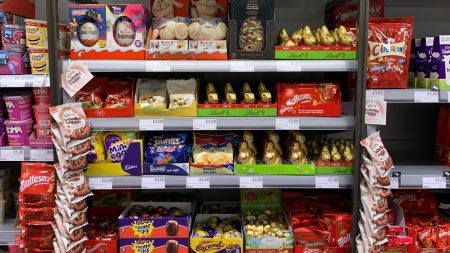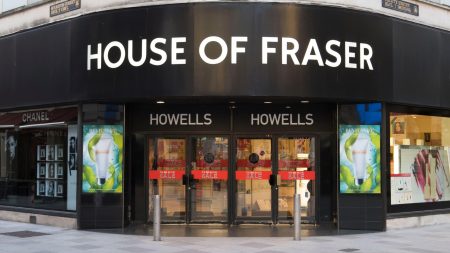Burberry, the iconic British fashion house renowned for its signature check pattern, has experienced a resurgence, buoyed by a strategic refocus on its core outerwear offerings and a renewed appeal to a younger demographic. After a period of struggling sales and a dip in investor confidence, the brand’s recently appointed CEO, Joshua Schulman, orchestrated a turnaround strategy centered on revitalizing Burberry’s heritage in coats and scarves, rather than chasing the fleeting trends of high-priced handbags. This back-to-basics approach, combined with savvy marketing campaigns featuring prominent figures like England footballer Cole Palmer, has resonated with consumers and reignited interest in the brand. The company’s latest financial results reflect this positive shift, with a smaller-than-projected sales decline and a renewed trajectory towards profitability, sending its share price soaring and dispelling previous speculation about its vulnerability to a takeover.
Schulman’s strategy appears to be paying off, as evidenced by a reported influx of new customers for the first time in over two years. This growth is particularly notable in the US market, which has helped offset the impact of shrinking sales in China and Europe. While the long-term effects of potential trade policies remain uncertain, the current surge in US consumer spending has provided a significant boost to Burberry’s performance. The company’s renewed focus on its classic outerwear, combined with a modernized approach to marketing and a targeted appeal to a younger audience, has created a potent combination that has revitalized the brand and restored investor confidence.
The success of Burberry’s turnaround underscores the importance of staying true to a brand’s core identity while simultaneously adapting to evolving market dynamics. By emphasizing its heritage in outerwear and leveraging the influence of contemporary figures, Burberry has effectively bridged the gap between its established legacy and the desires of a new generation of consumers. This strategic approach has not only strengthened the brand’s position in the competitive luxury market but has also set the stage for sustained growth and profitability. The company’s recent performance serves as a testament to the power of focusing on core strengths and adapting to changing market conditions.
Meanwhile, the broader retail landscape presents a mixed picture. Lakeland, a well-known kitchenware retailer, is reportedly exploring a potential sale amid a challenging retail environment. The company, which employs 1,000 staff across 59 stores, has already begun engaging with potential buyers. This move reflects the ongoing pressures faced by traditional retailers in a rapidly evolving market characterized by increasing online competition and shifting consumer preferences. The outcome of this potential sale will be closely watched as an indicator of the prevailing conditions in the retail sector.
In another corner of the retail world, The Original Factory Shop, a discount retailer, is nearing the final stages of a sale, highlighting the ongoing consolidation and restructuring within the industry. These developments underscore the challenges faced by retailers in adapting to a dynamic and increasingly competitive marketplace. The success of these transactions will depend on the ability of the new owners to navigate the evolving retail landscape and effectively cater to the changing needs and expectations of consumers.
Finally, Princes Group, the owner of well-known food brands like Branston beans and Princes tuna, has issued a stark warning about potential job cuts and the relocation of production overseas if ongoing strike threats are not resolved. The company’s chairman, Angelo Mastrolia, has indicated that a proposed three percent pay offer could be withdrawn if the Unite union proceeds with planned industrial action. This situation highlights the complex dynamics between employers and employees in a challenging economic environment, and the potential ramifications of unresolved labor disputes. The outcome of this situation will have significant implications for the affected workers and the future of Princes Group’s UK operations.











